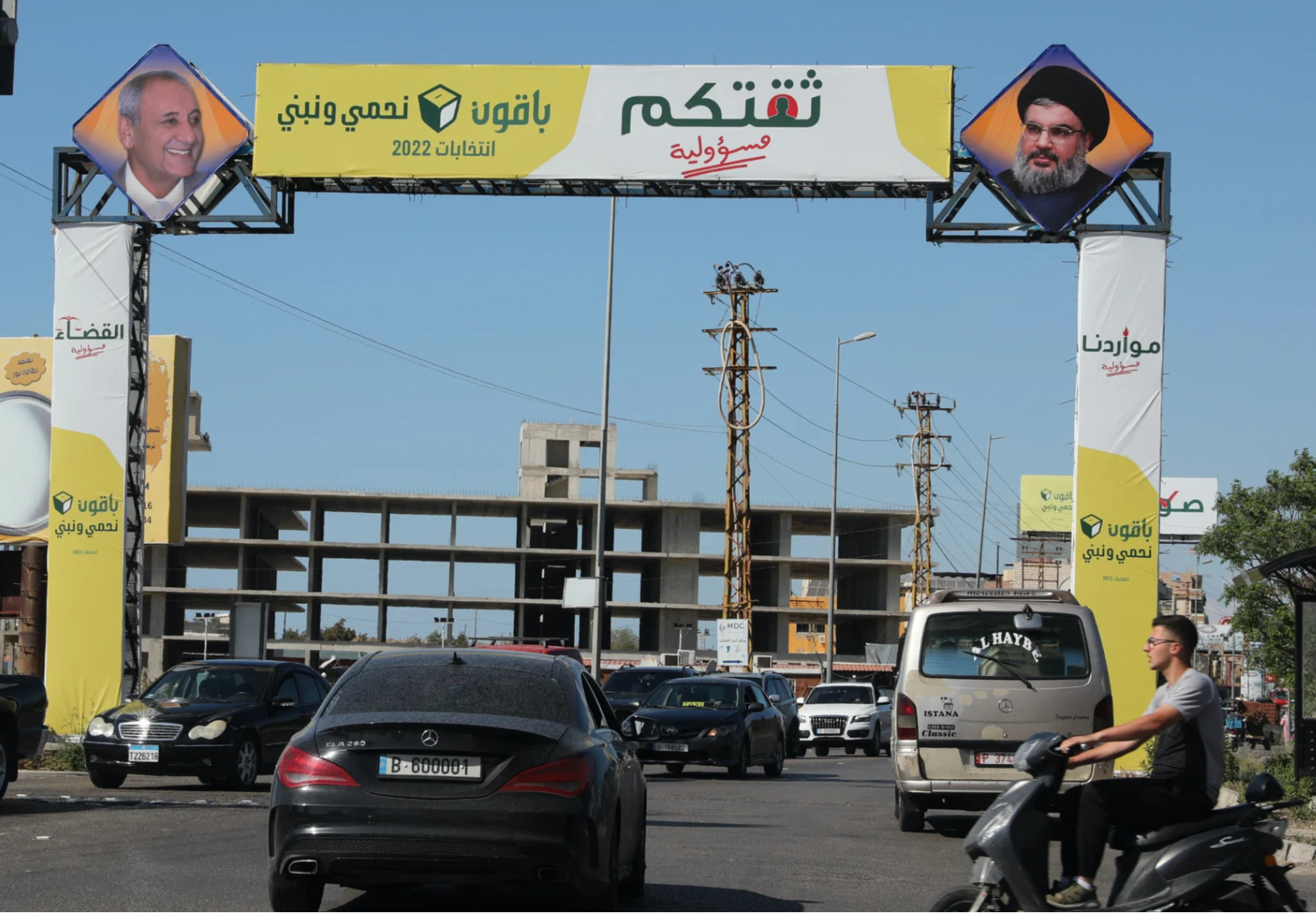
by Jerry Maher — arabnews.com — It is no secret that Hezbollah and its followers are restless about all that is happening in Lebanon on the economic, financial and social levels as a result of the suffocating crisis the country is going through. Hezbollah’s immediate suffering is one of the consequences of the war in Syria and its involvement there, which has led to the martyrdom of a large number of young people. However, amid signs of the end of the war in Syria and Damascus’ return to the Arab fold via the Arab League, it has become clear to the families of the fighters that the blood of their sons was spilled in vain, with no gains resulting from the party’s participation in the conflict in Syria on the basis of the “strategic aims of the resistance.” Therefore, resentment among the many Shiites who make up the party’s base increases on a daily basis, amid the stifling economic crisis and unstable living conditions the country is facing.
After all, they live with other Lebanese people and they share the same suffering. It appeared clearly and publicly with the launch of the popular movement of the Oct. 17 Revolution in 2019, when areas in Southern Lebanon and the Bekaa Valley witnessed popular movements under the slogan “All means all.” They accused the political class, including Hezbollah, of bringing the country to a state of economic deterioration and financial crisis — the worst since the civil war ended. Anger and resentment against the party’s policies are now being expressed publicly, no longer behind walls or in restricted meetings. As a result of the insane increase in the price of essential consumer goods and fuel, as well as the decline in purchasing power as a result of the Lebanese pound’s deteriorating value against the US dollar, people can no longer tolerate staying silent and have started to publicly express their views. In the end, a hungry man is an angry man, and all barriers fall before starvation. The impact of Hezbollah’s policies was evident in last year’s parliamentary elections, as turnout declined significantly in some of its strongholds. It is worth noting that the party and its allies directly employed tactics of intimidation and fear toward voters. Such practices were intense and widespread.
Moreover, Hezbollah limited its payment of salaries in US dollars to fighters only due to the shrinking of its revenues from Iran as a result of sanctions. It also changed the salaries of employees within its institutions into Lebanese lira, which increased the resentment and anger. As a result, it is attempting to make up for its financial shortcomings by providing direct assistance to its most committed supporters, particularly by granting them Al-Sajjad cards, which can be used to buy products from its institutions at discounted rates. The same applies to the launch of special cards to allow Hezbollah followers to buy medicines from a group of pharmacies it is affiliated with. These medicines are usually Iranian and are not subject to the conditions or control of the Lebanese Ministry of Health. The same is true of the foodstuffs imported from Iran.
The same also applies to the party’s attempt to expand its financial institutions, which are now operating in parallel to the legitimate banks in order to try to replace them in the future. These institutions, specifically Al-Qard Al-Hassan, which now has 31 branches, are distributed over a number of different regions after their work was confined to specific branches in order to absorb people’s resentment. This institution has become part of the speculative black market in Lebanon by investing “fresh dollars” into its affiliated ATMs and carrying out normal banking operations as if it were a commercial bank, in violation of all banking and financial laws in Lebanon.
It is also remarkable that aid in the form of food baskets, mostly given by international organizations like USAID, benefit only families affiliated with Hezbollah, even though the party publicly declares its enmity to the US and other Western countries. However, it is evident that a number of its officials and their families lead normal lives and are unaffected by the crisis because they are fortunate enough to receive direct donations from the party. That increases the anger of the families that do not benefit from the same and who have to make do with crumbs. The children and wives of Hezbollah leaders enjoy a life of luxury, travel and vacations, showing off by carrying luxury bags made by the likes of Gucci and Chanel and watches from international brands such as Rolex. Meanwhile, the people who make up the popular support of Hezbollah are not given their daily sustenance or anything that helps them face the daily challenges of living in Lebanon. Despite the fact that the country is undergoing social and economic deterioration, we clearly see the family members of Hezbollah officials living a fancy lifestyle, as explicitly revealed by the weddings of the children of these officials, which are worth hundreds of thousands of dollars. This undoubtedly increases the popular resentment against them. Some experts say Hezbollah is now losing its grip on Lebanon, given the anger spreading even in its traditional strongholds, with many in the country dissatisfied with Hezbollah and the other longtime power holders.
The decline of Hezbollah’s popularity and its political alliances cannot be traced to a single incident. Rather, it is the result of an ongoing accumulation of missteps and miscalculations the party has made over several years, not to mention its negative influence, which has hampered Lebanon’s democratic processes, impeded social cohesion and hindered its path toward prosperity.
• Jerry Maher, chairman and CEO at Sawt Beirut International and media adviser to Bahaa Hariri, is a Swedish political writer and analyst specializing in the Middle East and Iran. Twitter: @jerrymahers



